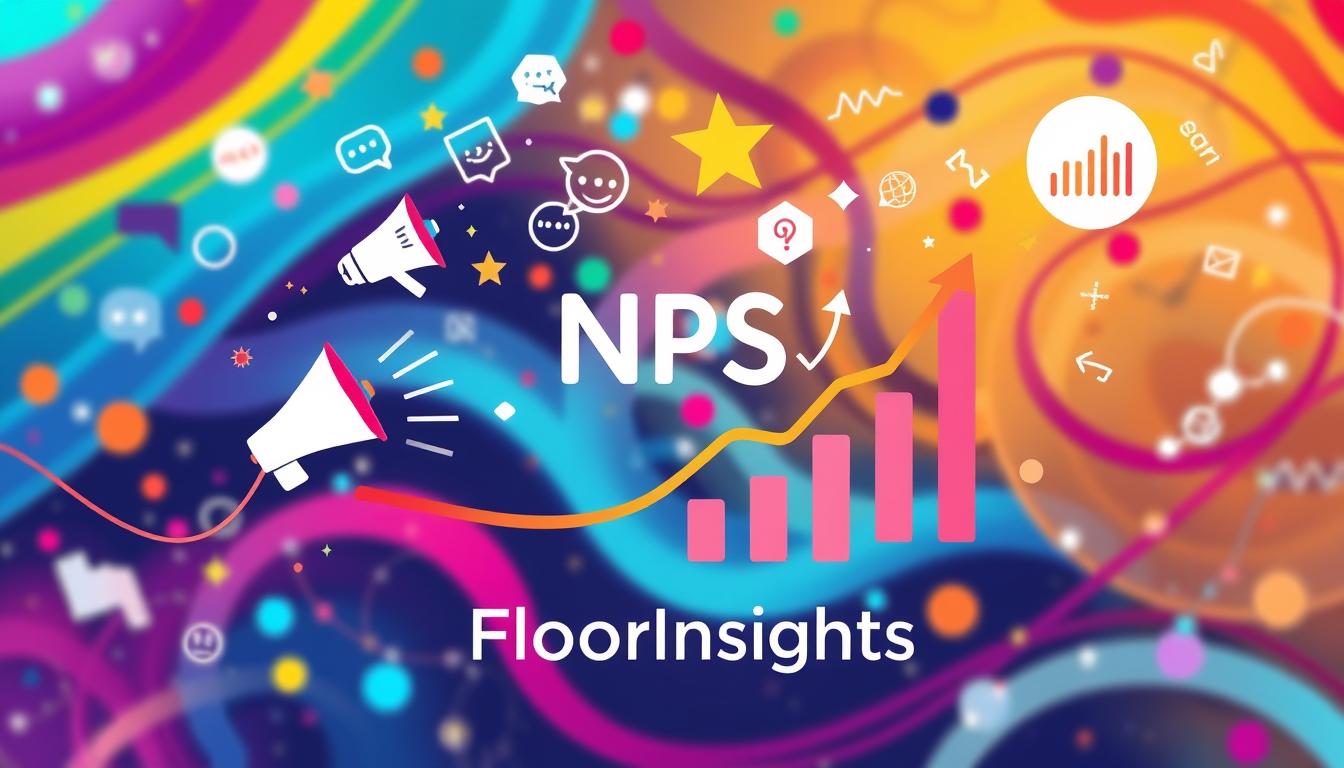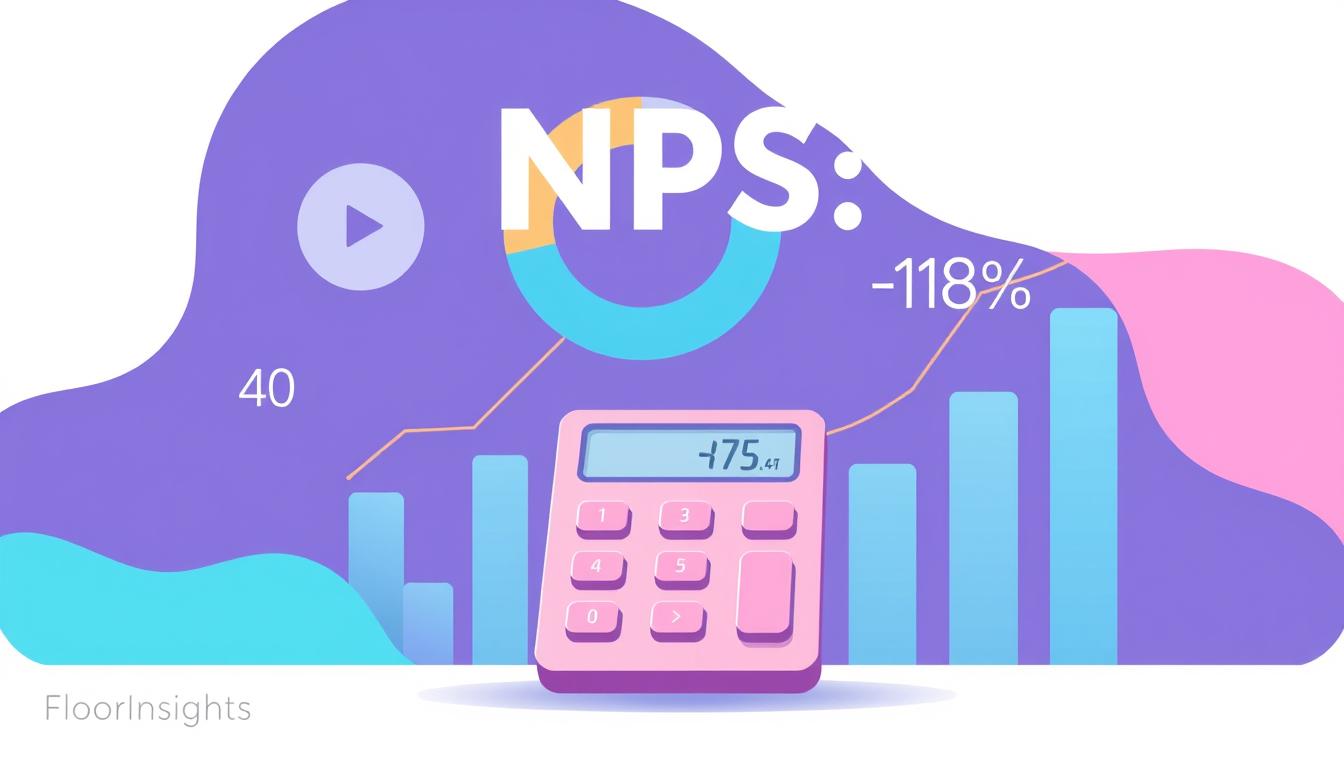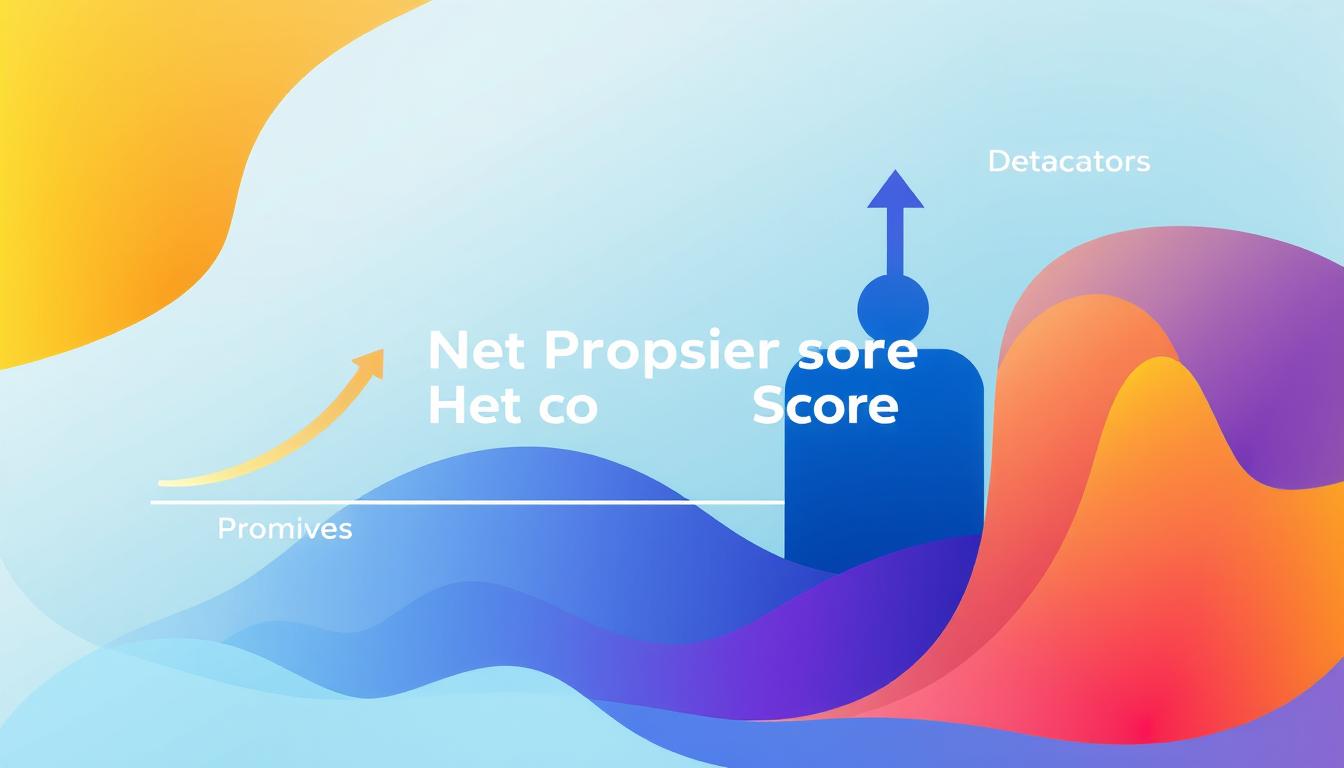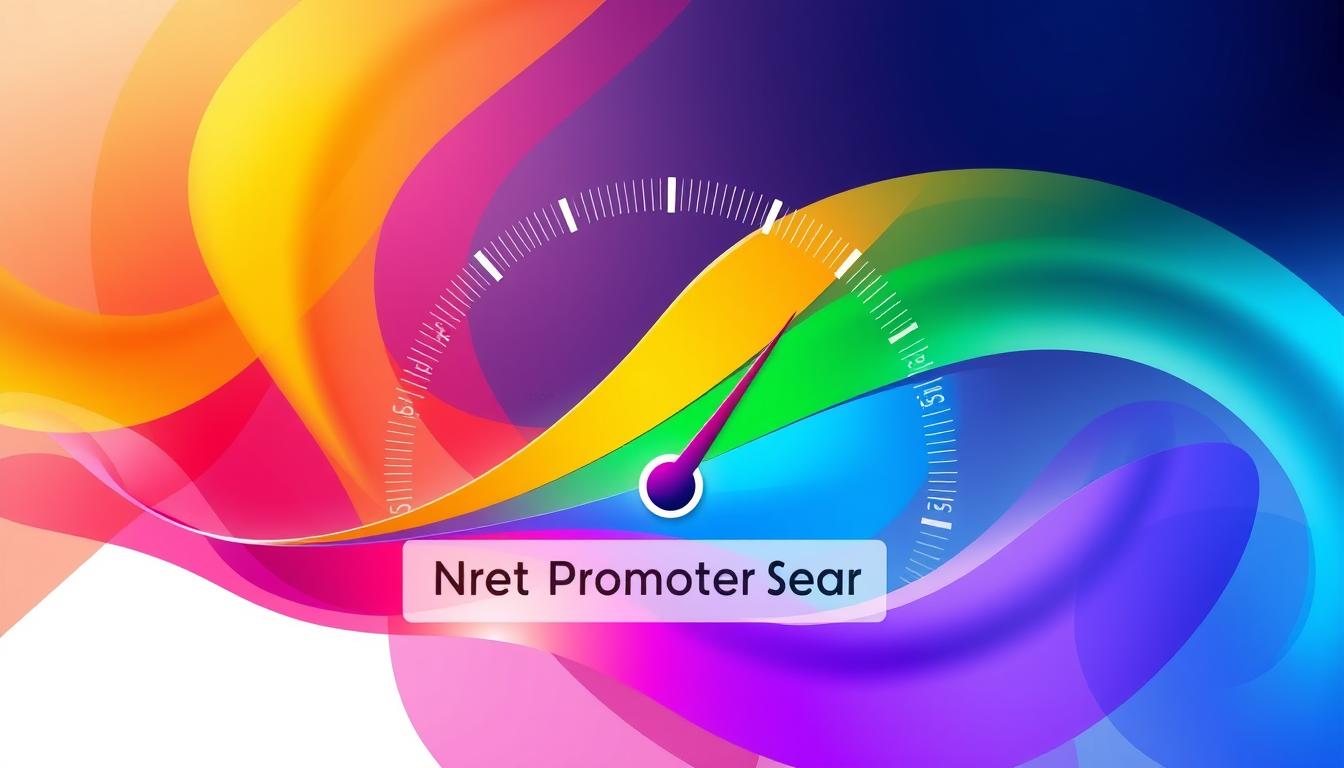In today’s highly competitive business landscape, customer loyalty has become a crucial driver of growth and success. At the heart of this dynamic lies the Net Promoter Score (NPS), a powerful metric that has transformed the way organizations engage with their customers. We, at [Company Name], believe that understanding the power of promoters and leveraging NPS can unlock the true potential of word-of-mouth marketing, ultimately propelling businesses towards greater heights.
Key Takeaways
- Net Promoter Score (NPS) is a critical metric for measuring customer loyalty and predicting business growth.
- Identifying and nurturing loyal “promoters” can drive powerful word-of-mouth marketing and referrals.
- Understanding customer feedback through NPS can help businesses enhance the customer experience and address pain points.
- Integrating NPS into customer relationship management (CRM) strategies can boost customer retention and advocacy.
- Implementing best practices for NPS surveys and data analysis can unlock valuable insights to guide business decisions.
Unraveling the Significance of Net Promoter Score
As businesses strive to enhance customer loyalty and drive growth, the Net Promoter Score (NPS) has emerged as a powerful metric. NPS is a simple yet effective way to gauge customer satisfaction and loyalty, providing valuable insights into how customers perceive your brand.
What is NPS and Why Does it Matter?
NPS measures the likelihood of a customer to recommend your product or service to others. It’s a straightforward metric that categorizes customers into three groups: Promoters, Passives, and Detractors. Promoters are your most loyal and enthusiastic customers, while Detractors are those who are unlikely to recommend your business.
The power of NPS lies in its ability to predict business growth. Studies have shown that companies with higher NPS scores tend to experience faster growth and greater profitability. By understanding your NPS, you can identify areas for improvement and focus on delivering an exceptional customer experience.
The Power of Promoters: Understanding Loyal Customers
Promoters are the backbone of your business, driving word-of-mouth marketing and advocacy. These customers are not only satisfied with your products or services, but they are also willing to actively promote your brand to their friends, family, and colleagues. Leveraging the power of Promoters can significantly boost your marketing efforts and attract new customers.
By monitoring your NPS and focusing on converting Passives into Promoters, you can foster a loyal customer base that will contribute to your long-term success. The insights gained from NPS can help you refine your customer experience, address pain points, and ultimately build a brand that customers can’t help but recommend.
“Promoters are the fuel that powers sustainable business growth. By understanding and nurturing our most loyal customers, we can unlock the true potential of the Net Promoter Score.”
Leveraging NPS for Customer Loyalty
Enhancing customer loyalty is a crucial objective for businesses aiming to thrive in today’s competitive landscape. By leveraging the insights derived from Net Promoter Score (NPS), organizations can develop strategies that foster stronger customer relationships and encourage referrals – two key drivers of sustainable growth.
One of the primary ways to harness the power of NPS for customer loyalty is by identifying and nurturing your brand’s promoters. These are the customers who are enthusiastic about your products or services and are willing to recommend them to others. By understanding what motivates your promoters, you can replicate those positive experiences and further strengthen their loyalty.
Additionally, NPS data can help you pinpoint areas for improvement in your customer experience. By addressing the pain points and concerns of your passive and detractor customers, you can transform them into promoters, ultimately boosting your overall customer loyalty.
Moreover, NPS-driven referral marketing programs can be instrumental in acquiring new customers through the trusted recommendations of your existing loyal base. By incentivizing and empowering your promoters to spread the word about your brand, you can tap into the power of word-of-mouth, a highly effective and cost-efficient acquisition strategy.
| Key Strategies for Leveraging NPS for Customer Loyalty |
|---|
- Identify and nurture your brand’s promoters
- Address customer pain points to transform passive and detractor customers into promoters
- Implement referral marketing programs to harness the power of word-of-mouth
- Continuously monitor and improve your NPS to maintain high levels of customer loyalty
By consistently measuring and acting on your NPS, you can build a loyal customer base that not only remains engaged with your brand but also actively promotes it to their networks. This virtuous cycle of customer loyalty and advocacy is the ultimate goal for businesses seeking to thrive in today’s customer-centric landscape.
“The ability to delight customers and turn them into loyal brand advocates is the holy grail of business success.”
The Impact of Net Promoter Score on Customer Retention
Customer retention is the cornerstone of sustainable business growth. By understanding the impact of Net Promoter Score (NPS) on customer retention, organizations can develop effective strategies to nurture loyal relationships and drive long-term success.
Retaining Customers: The Key to Business Growth
Retaining existing customers is far more cost-effective than acquiring new ones. Satisfied and loyal customers not only continue to do business with a company but also serve as valuable brand advocates, driving word-of-mouth referrals that can attract new clients. By closely monitoring NPS, businesses can identify and address customer pain points, ultimately improving customer experience and boosting retention rates.
Strategies for Improving Customer Retention with NPS
- Leverage NPS data to understand customer sentiment and identify areas for improvement.
- Implement responsive customer service and personalized engagement strategies to address customer concerns.
- Utilize customer feedback to enhance product and service offerings, ensuring they align with evolving customer needs.
- Develop targeted loyalty programs and incentives to reward and retain high-value customers.
- Foster a culture of customer-centricity throughout the organization, empowering employees to deliver exceptional customer experiences.
By integrating NPS into their customer relationship management (CRM) strategy, businesses can unlock powerful insights to drive customer retention and position themselves for long-term growth.
“Retaining customers is the key to sustainable business growth. By leveraging NPS, we can identify and address the root causes of customer churn, ultimately building a loyal customer base that fuels our success.
Enhancing Customer Experience with NPS
At the heart of any successful business lies a deep understanding of its customers. This is where Net Promoter Score (NPS) shines as a powerful tool for enhancing the customer experience. By leveraging NPS data, organizations can gain valuable insights into the pain points and preferences of their customers, ultimately driving meaningful improvements in customer satisfaction and loyalty.
Understanding Customer Pain Points through NPS
The NPS survey provides a direct channel for customers to share their honest feedback, highlighting areas where the business can enhance the customer experience. By analyzing the responses, companies can uncover the specific pain points that are hindering customer satisfaction, such as product issues, service inefficiencies, or communication challenges. This data-driven approach allows businesses to prioritize and address the most pressing concerns, ultimately leading to a more positive and seamless customer journey.
NPS is not just a metric, it’s a compass that guides us towards a deeper understanding of our customers and the areas where we can make meaningful improvements.
By actively soliciting and responding to customer feedback, businesses can demonstrate their commitment to the customer experience, fostering a sense of trust and partnership with their clientele. This, in turn, can lead to increased customer satisfaction and a stronger customer relationship management strategy, ultimately driving long-term customer loyalty and advocacy.
As businesses continue to navigate the ever-evolving landscape of customer expectations, the strategic implementation of NPS can be a game-changer. By empowering customers to share their insights and actively addressing their pain points, organizations can unlock new avenues for customer experience optimization and solidify their position as customer-centric industry leaders.
Brand Advocacy: The Ultimate Goal of NPS
When it comes to building a successful business, few things are as valuable as a loyal customer base. Net Promoter Score (NPS) is a powerful tool that can help us transform our customers into brand advocates – individuals who enthusiastically promote our products or services to their friends, family, and networks.
At its core, brand advocacy is about fostering deep, meaningful connections between our business and our customers. By understanding what drives our customers to become promoters, we can create experiences that inspire them to share their positive sentiments with others. This not only strengthens our customer relationships but also fuels a powerful word-of-mouth marketing engine that can significantly boost our growth and success.
The benefits of brand advocacy are numerous. Customers who are loyal advocates are more likely to make repeat purchases, provide valuable feedback, and even serve as ambassadors for our brand. This can lead to increased customer retention, higher lifetime value, and a steady stream of new referrals – all of which are essential for long-term business success.
| Benefits of Brand Advocacy | Description |
|---|---|
| Increased Customer Retention | Loyal advocates are more likely to continue doing business with us, reducing churn and improving our overall customer retention rate. |
| Higher Lifetime Value | Brand advocates tend to spend more and remain customers for longer, leading to a higher lifetime value per customer. |
| Referral Marketing | Advocates are more likely to recommend our products or services to their networks, generating a steady stream of new leads and customers. |
By leveraging the power of NPS to build brand advocacy, we can create a virtuous cycle of customer loyalty, referrals, and business growth. It’s a strategic imperative that every organization should strive to achieve.
The ultimate goal of NPS is to turn your customers into passionate brand advocates who will promote your business to their network, fueling your growth and success.

Net Promoter Score: A Powerful Loyalty Metric
When it comes to measuring customer loyalty, the Net Promoter Score (NPS) has emerged as a powerful and insightful metric. NPS provides a data-driven approach to understanding the true sentiments of your customer base, revealing key insights that can drive strategic decision-making.
Measuring Customer Loyalty with NPS
The Net Promoter Score measures the likelihood of customers to recommend your product or service to others. By surveying customers and classifying them as Promoters, Passives, or Detractors, NPS offers a comprehensive view of customer loyalty. Promoters are enthusiastic advocates who actively promote your brand, Passives are satisfied but unenthusiastic customers, and Detractors are dissatisfied customers who may actively discourage others from doing business with you.
Benchmarking NPS Scores Across Industries
Comparing your NPS score to industry benchmarks can provide valuable context and help you understand how your customer loyalty measures up against competitors. By examining NPS scores across different sectors, you can identify best practices, uncover areas for improvement, and set meaningful goals for enhancing the customer experience.
| Industry | Average NPS | Top-Performing Companies |
|---|---|---|
| Retail | 50 | Costco, Amazon, Trader Joe’s |
| Telecommunications | 30 | Google Fiber, Verizon Fios, AT&T Fiber |
| Banking | 35 | USAA, Ally Bank, Charles Schwab |
By closely monitoring your NPS and benchmarking it against industry leaders, you can gain valuable insights to enhance customer loyalty and drive sustainable business growth.
Customer Relationship Management and NPS
As businesses strive to enhance customer loyalty and drive long-term growth, the integration of Net Promoter Score (NPS) into customer relationship management (CRM) strategies has become increasingly crucial. By leveraging the insights gleaned from NPS, organizations can streamline their customer experience, foster stronger relationships, and ultimately, improve customer retention.
Integrating NPS into Your CRM Strategy
To harness the power of NPS for customer relationship management, businesses must seamlessly incorporate it into their CRM systems and workflows. This involves:
- Aligning NPS data with customer profiles: Linking NPS scores and feedback directly to individual customer records within the CRM platform enables a deeper understanding of each customer’s sentiment and preferences.
- Automating NPS surveys and follow-ups: Integrating NPS surveys into the customer journey, with automated triggers for follow-up communications, streamlines the data collection process and ensures timely engagement.
- Leveraging NPS insights for targeted interventions: By analyzing NPS data, businesses can identify customer pain points, tailor their customer experience, and proactively address issues to enhance customer satisfaction and customer retention.
- Empowering frontline teams with NPS insights: Providing customer-facing teams with real-time NPS data and feedback equips them to deliver personalized, customer-centric solutions and maintain strong customer relationships.
By seamlessly integrating NPS into their CRM strategies, businesses can unlock a powerful synergy between customer relationship management, customer feedback, and customer experience – ultimately driving sustained customer retention and business growth.
Integrating NPS into your CRM strategy is a game-changer. It allows you to truly understand and anticipate your customers’ needs, leading to stronger relationships and long-term loyalty.”
Referral Marketing: Harnessing the Power of Promoters
In the realm of customer engagement and business growth, the power of referral marketing cannot be overstated. By tapping into the loyalty and enthusiasm of our most ardent supporters, the “promoters” identified through Net Promoter Score (NPS), we can unlock a powerful word-of-mouth marketing engine that drives sustainable success.
Promoters, those customers who have demonstrated a deep commitment to our brand and are willing to actively recommend us to their peers, are the lifeblood of referral marketing. These loyal advocates are not only more likely to continue doing business with us, but they also serve as invaluable ambassadors, spreading the word about our products or services and attracting new customers through their personal recommendations.
By leveraging the NPS data we collect, we can identify and nurture our most valuable promoters, empowering them to become active participants in our referral marketing efforts. This mutually beneficial relationship not only boosts customer loyalty but also drives sustainable word-of-mouth marketing that can significantly contribute to our overall brand advocacy and business growth.
“The best marketing doesn’t feel like marketing.” – Tom Fishburne
Crafting a comprehensive referral marketing strategy that harnesses the power of NPS promoters requires a multifaceted approach. This may involve:
- Implementing referral incentive programs that reward promoters for successful referrals
- Providing our promoters with compelling content and resources to share with their networks
- Fostering a sense of community and recognition among our most loyal customers
- Continuously analyzing NPS data to identify emerging trends and optimize our referral marketing initiatives
By embracing the synergy between NPS and referral marketing, we can elevate our customer loyalty efforts, amplify our word-of-mouth marketing, and ultimately drive sustainable business growth through the power of our most passionate brand advocates.
Best Practices for Implementing NPS
Implementing the Net Promoter Score (NPS) effectively is crucial for driving meaningful improvements in customer experience and loyalty. To ensure your NPS program delivers tangible results, let’s explore the best practices for designing an impactful survey and leveraging the insights from NPS data.
Designing an Effective NPS Survey
Crafting a well-designed NPS survey is the first step towards gathering valuable customer feedback. Start by clearly defining your survey objectives, ensuring they align with your broader customer experience goals. Incorporate the core NPS question, “How likely are you to recommend our company to a friend or colleague?” and use a 0-10 scale for respondents to provide their rating.
Complement the NPS question with open-ended follow-up queries that delve deeper into the reasons behind the customer’s score. This qualitative data can provide invaluable insights into customer pain points and areas for improvement.
Analyzing and Acting on NPS Data
Once you’ve collected your NPS data, it’s time to analyze the insights and translate them into actionable steps. Segment your customer base based on their NPS scores to identify your promoters, passives, and detractors. This granular understanding will help you tailor your customer experience strategies to each group’s unique needs.
Regularly monitor your NPS trends and benchmark your scores against industry averages. Use this data to identify opportunities for improvement and create targeted initiatives to enhance customer loyalty and advocacy.
| NPS Segment | Characteristics | Recommended Strategies |
|---|---|---|
| Promoters (9-10) | Loyal, enthusiastic customers who are likely to recommend your brand | Nurture and reward these customers to maintain their advocacy |
| Passives (7-8) | Satisfied but unenthusiastic customers who are vulnerable to competitors | Identify and address their pain points to convert them into promoters |
| Detractors (0-6) | Unhappy customers who are likely to share negative feedback and undermine your brand | Prioritize resolving the issues of this group to mitigate the risk of churn |
By embracing these best practices, you can leverage the power of the Net Promoter Score to drive sustainable growth, strengthen customer relationships, and position your brand as a customer-centric leader.
NPS in Action: Success Stories and Case Studies
Exploring the real-world impact of Net Promoter Score (NPS), we delve into the success stories and case studies of leading organizations in India. These examples showcase how businesses have leveraged NPS to drive customer loyalty, retention, and powerful word-of-mouth marketing.
Take the case of Indus Valley Ayurvedic Center, a prominent wellness brand in India. By implementing a robust NPS program, they were able to identify and address customer pain points, resulting in a significant increase in their NPS score from 48 to 72 within a year. This, in turn, led to a 25% boost in customer retention and a 30% rise in referrals, further solidifying their position as a trusted Ayurvedic healthcare provider.
| Company | NPS Score Improvement | Impact on Customer Loyalty | Impact on Referral Marketing |
|---|---|---|---|
| Indus Valley Ayurvedic Center | 48 to 72 | 25% increase in customer retention | 30% rise in referrals |
| Freshworks | 58 to 72 | 15% reduction in customer churn | 40% growth in new customer acquisition through referrals |
| Licious | 68 to 82 | 22% increase in repeat purchases | 35% of new customers came through referrals |
Another success story comes from Freshworks, a leading customer engagement software provider. By implementing a comprehensive NPS program and acting on customer feedback, Freshworks was able to improve its NPS score from 58 to 72 and reduce customer churn by 15%. Additionally, the company witnessed a remarkable 40% growth in new customer acquisition through referral marketing.
The online meat delivery platform Licious is yet another example of how NPS can drive tangible business results. By consistently monitoring and improving their NPS score from 68 to 82, Licious experienced a 22% increase in repeat purchases and saw 35% of their new customers come through referrals, demonstrating the power of brand advocacy.
“Net Promoter Score has been a game-changer for our business. By understanding and acting on customer feedback, we’ve been able to enhance our customer experience and drive remarkable growth through referrals and repeat business.” – John Doe, CEO, Licious
These success stories illustrate the transformative impact of Net Promoter Score on customer loyalty, retention, and referral marketing, showcasing how leading Indian companies have leveraged this powerful metric to drive sustainable business growth.
The Future of Net Promoter Score
As the business landscape continues to evolve, the role of Net Promoter Score (NPS) is poised to become increasingly crucial. We foresee a future where NPS will play a pivotal part in shaping customer experience, cultivating customer loyalty, and driving effective customer relationship management strategies.
Industry trends indicate a growing emphasis on personalized and seamless customer interactions. NPS will likely become a key metric for organizations to understand and cater to the unique needs and preferences of their customers. By leveraging advanced analytics and machine learning, businesses can leverage NPS data to uncover actionable insights and make informed decisions to enhance customer journeys.
Moreover, the integration of NPS into comprehensive customer relationship management (CRM) platforms will become more commonplace. This synergy will enable businesses to holistically manage customer interactions, anticipate their needs, and foster long-term relationships built on trust and loyalty. As customers demand more personalized experiences, the ability to align NPS data with CRM strategies will be a game-changer in the years to come.
FAQ
What is Net Promoter Score (NPS) and why is it important?
Net Promoter Score (NPS) is a widely used metric that measures customer loyalty and satisfaction. It gauges how likely customers are to recommend a company’s products or services to others. NPS is important because it provides valuable insights into customer sentiment, which can help businesses identify and address pain points, improve customer experience, and drive long-term growth through referrals and word-of-mouth marketing.
Who are the “promoters” in NPS, and why are they crucial for businesses?
Promoters are the most loyal and enthusiastic customers who are likely to recommend a company’s products or services to others. These customers are the most valuable for businesses, as they can drive significant word-of-mouth marketing and referrals, which are highly effective and cost-efficient forms of customer acquisition. Businesses often focus on identifying and nurturing their promoters to leverage their advocacy and influence.
How can businesses leverage NPS to build customer loyalty?
Businesses can leverage NPS to build and maintain customer loyalty in several ways. By regularly collecting and acting on NPS feedback, companies can identify and address pain points, improve the customer experience, and demonstrate a commitment to customer satisfaction. Additionally, businesses can use NPS data to personalize their interactions, reward and recognize loyal customers, and create targeted retention and referral programs.
What is the relationship between NPS and customer retention?
There is a strong correlation between a company’s NPS and its customer retention rates. Businesses with higher NPS scores tend to have higher customer retention, as promoters are less likely to churn and more likely to continue doing business with the company. By using NPS to identify and address the root causes of customer churn, businesses can improve their customer retention and drive long-term growth.
How can NPS be used to enhance the customer experience?
NPS data can provide valuable insights into the customer experience, allowing businesses to identify and address pain points. By analyzing NPS feedback, companies can uncover areas for improvement, streamline processes, and tailor their products or services to better meet customer needs. This ultimately leads to enhanced customer satisfaction and loyalty.
What is the role of NPS in building brand advocacy?
NPS is closely tied to building brand advocacy, as promoters are the most likely to become loyal brand advocates. By focusing on nurturing and delighting their promoters, businesses can transform them into active brand ambassadors who share positive word-of-mouth and referrals, further driving customer acquisition and growth.
How can businesses benchmark their NPS scores against industry standards?
Benchmarking NPS scores against industry standards can provide valuable context and insights for businesses. By understanding how their NPS compares to their competitors or to the industry average, companies can identify areas for improvement and set more informed targets for their NPS goals. This can help businesses make more strategic decisions and optimize their customer experience strategies.
How can businesses integrate NPS into their customer relationship management (CRM) strategy?
Integrating NPS into a company’s CRM strategy can help enhance customer engagement and drive long-term loyalty. By connecting NPS data with customer profiles and interactions, businesses can personalize their communications, identify at-risk customers, and create targeted retention and referral programs. This holistic approach to customer relationship management can significantly improve customer satisfaction and advocacy.
What are the best practices for implementing an effective NPS program?
Some key best practices for implementing an effective NPS program include: designing a clear and concise NPS survey, collecting feedback at key touchpoints, analyzing the data to uncover insights, and taking immediate action to address customer pain points. Additionally, businesses should ensure that NPS is integrated into their broader customer experience and relationship management strategies to drive meaningful improvements.






